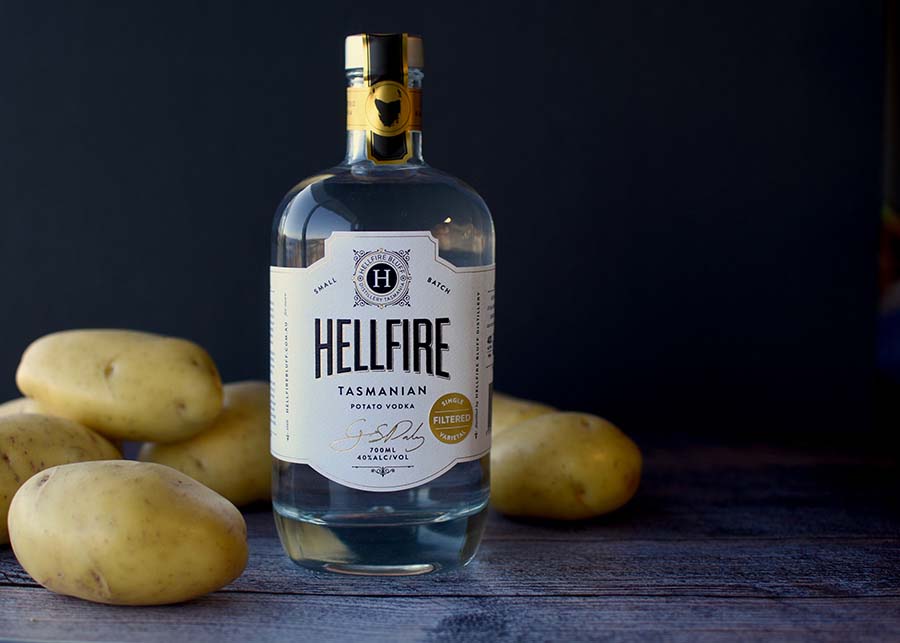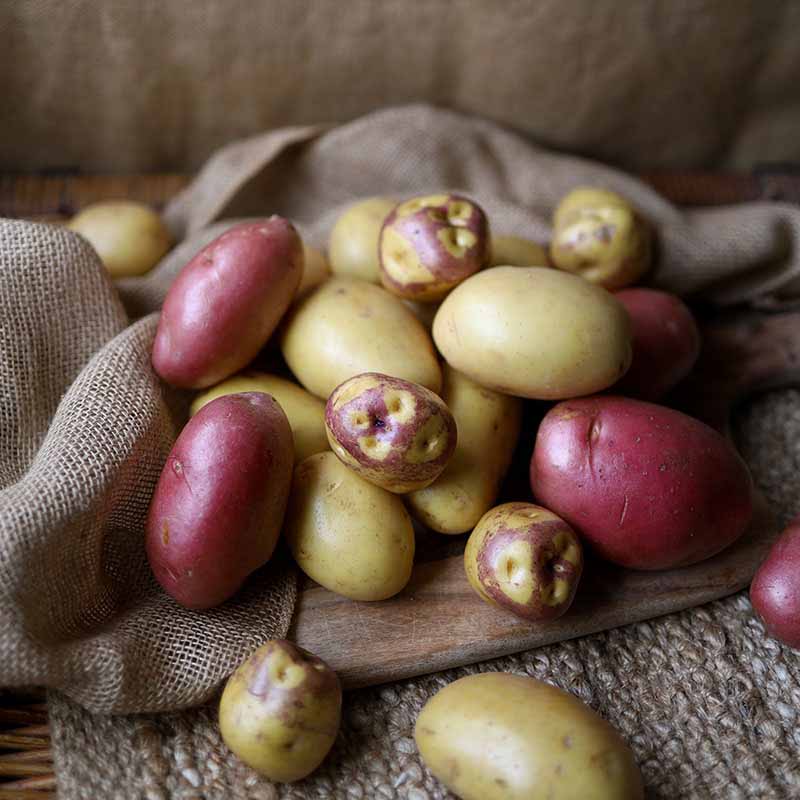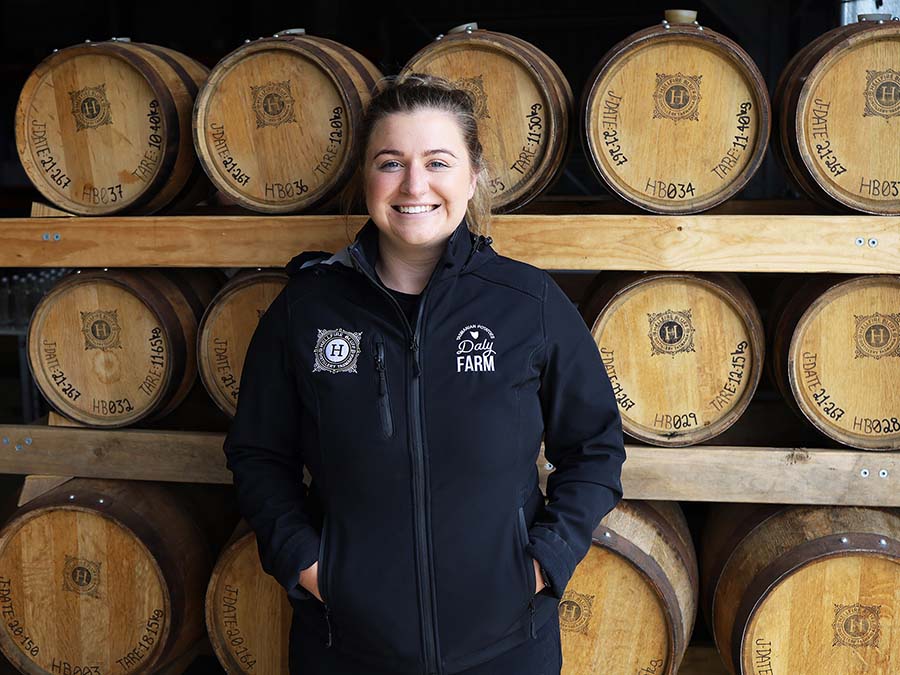A home for every potato
Once both new companies were up and running, Susie became the sole driver of Daly Potato Co. while Ruby managed Hellfire Bluff Distillery. These businesses achieved their mission: to find a home for the 20% of second-grade spuds otherwise going to waste. Here's how both new companies fared.
Daly Potato Co.
Daly Potato Co. presented a massive learning curve for Susie and the rest of the Daly family. Faced with constant food safety, R&D and marketing demands, their new undertaking proved a challenge. They needed to update equipment regularly to comply with constantly changing food safety legislation. 'When we needed to update the equipment, it wouldn't be $10,000, it would be $100,000,' says Ruby. 'It was an incredibly cash-hungry business and one that wasn't profitable for farmers like us to maintain once we had set it up.' To keep their fledgling start-up profitable, in 2021 they sold Daly Potato Co. to Pure Foods Tasmania, a food investor group better equipped to deal with food legislation and the requirements of operating a large commercial kitchen. Part of this arrangement specified that Daly Farm was the sole supplier to Daly Potato Co., ensuring a profitable and continuous destination for the farm's second-grade potatoes.
Hellfire Bluff Distillery
 From the reject pile to international awards and acclaim.
From the reject pile to international awards and acclaim.
Hellfire Bluff Distillery provided a much-needed creative outlet for Ruby and allowed her to contribute to the family business in personally rewarding ways. Within a year of releasing their now iconic Potato Vodka, they worked with a food scientist and flavourist to develop several gins. Hellfire's product range continues to expand, and they now also offer a range of gins, liqueurs, pre-mixed drinks and non-alcoholic spirits.
From 2019 through to 2022, they have consistently won national and international spirits and gin awards. Ruby enjoys working with flavourists to develop new gins and liqueurs and planning new releases and market opportunities. In 2021, Hellfire Bluff Distillery paid off the investment made by Daly Farm, and it is now buying the farm's second-grade potatoes used in their vodka. They are currently producing 500 bottles of Potato Vodka per year and many other spirits, liqueurs and alcohol alternatives.




